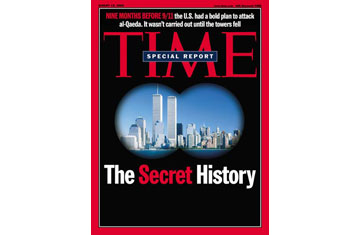
(10 of 19)
This was, after all, a White House plan, which means it was resented from the moment of conception. "When you look at the Pentagon and the CIA," says a former senior Clinton aide, "it's not their plan. The military will never accept the White House staff doing military planning." Terrorism, officials from the State Department suggested, needed to be put in the broader context of American policy in South Asia. The rollback plan was becoming the victim of a classic Washington power play between those with "functional" responsibilities--like terrorism--and those with "regional" ones--like relations with India and Pakistan. The State Department's South Asia bureau, according to a participant in the meetings, argued that a fistful of other issues--Kashmir, nuclear proliferation, Musharraf's dictatorship--were just as pressing as terrorism. By now, Clarke's famously short fuse was giving off sparks. A participant at one of the meetings paraphrases Clarke's attitude this way: "These people are trying to kill us. I could give a f___ if Musharraf was democratically elected. What I do care about is Pakistan's support for the Taliban and turning a blind eye to this terrorist cancer growing in their neighbor's backyard."
It was Bush who broke the deadlock. Each morning the CIA gives the Chief Executive a top-secret Presidential Daily Brief (PDB) on pressing issues of national security. One day in early spring, Tenet briefed Bush on the hunt for Abu Zubaydah, al-Qaeda's head of international operations, who was suspected of having been involved in the planning of the attack on the U.S.S. Cole. After the PDB, Bush told Rice that the approach to al-Qaeda was too scattershot. He was tired of "swatting at flies" and asked for a comprehensive plan for attacking terrorism. According to an official, Rice came back to the NSC and said, "The President wants a plan to eliminate al-Qaeda." Clarke reminded her that he already had one.
But having a plan isn't the same as executing it. Clarke's paper now had to go through three more stages: the Deputies' Committee, made up of the No. 2s to the main national-security officials; the Principals' Committee, which included Cheney, Rice, Tenet, Powell and Rumsfeld; and finally, the President. Only when Bush had signed off would the plan become what the Bush team called a national-security presidential directive.
